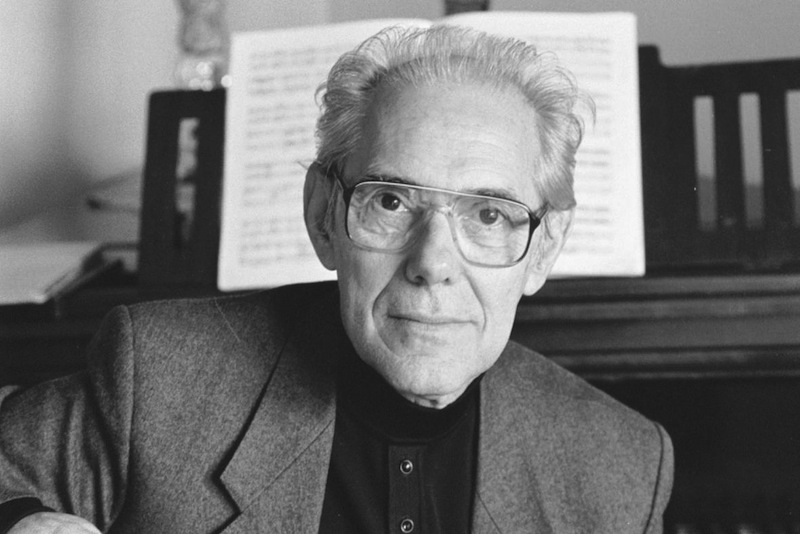Eben’s music proves most compelling at Ullmann Project concert
The Ullmann Project is an effort initiated by soprano Dominique Hellsten to present the works of the little-known Austrian Viktor Ullmann alongside some of his contemporaries, including his teacher, Alexander von Zemlinsky. The initiative produced a concert of vocal music at Merkin Concert Hall last October and Tuesday night offered a program of songs and organ works at St. Peter’s Church. And while Ullmann appropriately enough dominated the program, it was a composer 30 years his junior who stole the show.
The concert opened with soprano Monica Niemi, accompanied by Matthew Odell at the piano, singing Ullman’s Geistliche Lieder, Op. 20. While not written in the 12-tone scale, the songs floated in an ethereal dissonance reminiscent of Ullmann’s contemporary, Arnold Schoenberg. Ullmann’s harmonic structures are no less beholden to convention, although they are built on a number of traditions, reflecting the composer’s wide-ranging interests in history and world cultures. The six songs, first published in 1940, came off in the performance as serene and murky, like an overgrown pond. The move from those settings of poems by Albert Steffen to two songs using text by Peter MacKaye, with all their romantic flourishes, was a bit of a surprise. Ullmann was a chameleonic composer, a talent which produced a variety of projects and which allowed for a diverse program of his work.
Organist Johannes Landgrem spoke about his numerous interviews with the Czech composer Petr Eben, relating the latter’s concentration camp memories. (Among the many parallels in Eben and Ullmann’s lives is witnessing the horrors of the Nazi camps; Ullmann was killed in Auschwitz at age 46.)
He then played the first two of four of Eben’s organ works which proved to be the high points of the night. “The Mystery of Creation,” from a set of eight organ solos entitled simply Job (1987), was soft and fretful, borrowing from the hymn “Wer nor den lieben Gott lässt walten.” A discordant, internal tension slowly built, no doubt representing Job’s own struggle with God’s command, ending mid-phrase like an unanswered question. Eben’s setting of Lied der Ruth (1970) was sung by Hellsten. It was an effective piece with a melody ascending in broken lines as its its main motif.
The warm acoustics of the chapel, with the piano and singers placed in the center, worked well for the voices, especially a pair of baritones (Jason Plourde and William Robinson, with Craig Ketter at the piano) who performed Ullmann’s 12 Bilder von Hans Günther Adler. Ullmann let the text drive the music (and so, in performance, the singers). He also allowed a big of light humor in the brief songs, which at times seemed nearly aphorisms. The quick, march-like Der Nachbar was a highlight, its text sung in German but translated (in full) as “Help is good. Hand to hand. Door to door and wall to wall. All one another. Government and band.”
Easier moods also arose in Ullmann’s setting of Rilke’s translation of Elizabeth Barrett Browning’s Drei Sonette aud dem Portugiesischen (which he dedicated to Zemlinsky) and Zemlinsky’s own Ehetanzlied und andere Gesänge, a set of love songs albeit with a tragic back story; they were written for Alma Maria Schlindler, whom he eventually lost to Gustav Mahler.
Hellsten promised to “lighten the mood somewhat” again in introducing Erich Wolfgang Korngold’s Drei Leider, Op. 22, but all it did was slow the proceedings in anticipation of the other Eben works on the bill.
The third Eben piece of the evening and his second for voice and organ, a hymn for Ste. Cecelia, was sung by Hellsten. Her voice and the organ blended seamlessly, even as organ stops were being changed during sustained notes, and rushed phrases seemed as if they feared being left behind. If occasional phrases hinted at the pipe organ’s cousin, the calliope, the first half of the rollicking solo Dance of Jeptha’s Daughter underscored that kinship. In due time, however, a foreboding bass line entered and developed, suggesting the biblical battle, and serpentine figures reduced to a snail’s pace finale.
